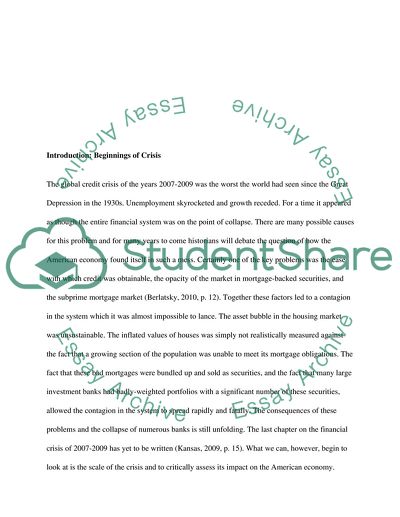Cite this document
(The Impact of the Global Credit Crises on the US Economy Case Study, n.d.)
The Impact of the Global Credit Crises on the US Economy Case Study. Retrieved from https://studentshare.org/macro-microeconomics/1745070-globalisation-and-financial-crisis
The Impact of the Global Credit Crises on the US Economy Case Study. Retrieved from https://studentshare.org/macro-microeconomics/1745070-globalisation-and-financial-crisis
(The Impact of the Global Credit Crises on the US Economy Case Study)
The Impact of the Global Credit Crises on the US Economy Case Study. https://studentshare.org/macro-microeconomics/1745070-globalisation-and-financial-crisis.
The Impact of the Global Credit Crises on the US Economy Case Study. https://studentshare.org/macro-microeconomics/1745070-globalisation-and-financial-crisis.
“The Impact of the Global Credit Crises on the US Economy Case Study”, n.d. https://studentshare.org/macro-microeconomics/1745070-globalisation-and-financial-crisis.


